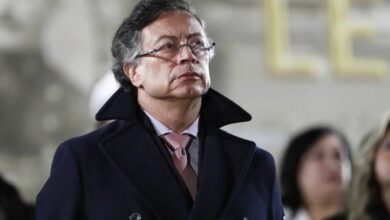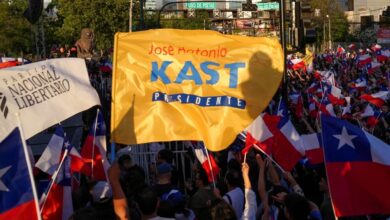Luis Abinader Wins Reelection in Dominican Republic Amid Electoral Tensions

President Luis Abinader has been reelected in the Dominican Republic, securing nearly 59.11% of the votes. Though celebrated, his victory is shadowed by opposition claims of electoral irregularities, reflecting ongoing challenges in the nation’s democratic process.
The Dominican Republic’s political landscape witnessed a significant moment as President Luis Abinader secured reelection with a decisive 59.11% of the votes. This victory marks a strong mandate for Abinader, who nearly doubled the votes of his closest rival, former President Leonel Fernández, who garnered 26.95%. The preliminary results, reflecting 38.24% of the polling stations, underscore a robust support base for Abinader and his Modern Revolutionary Party (PRM).
Many political analysts anticipated Luis Abinader’s reelection, given his clear lead among the nine candidates vying for the presidency. Over 8.1 million Dominican citizens, including more than 800,000 abroad, were eligible to vote in these crucial elections, which also included the selection of the vice president, members of the bicameral Congress, and representatives to the Central American Parliament (Parlacen).
According to the Central Electoral Board, Leonel Fernández of the People’s Force party was in second place in the elections. At the same time, Abel Martínez, the former Speaker of the House of Representatives and mayor of Santiago, came in third with 10.73% of the votes. Martínez congratulated Abinader on his victory, emphasizing a commitment to democracy and national well-being. “This gesture of civility strengthens our democracy and reflects our collective commitment to the nation’s welfare. Let us continue working together for a better future for all Dominicans,” Abinader stated on his social media account.
Historical Context and Electoral Significance
The Dominican Republic has a complex political history marked by periods of authoritarian rule, democratic transitions, and economic challenges. Abinader’s reelection signifies continuity in governance under the PRM, a party known for its progressive liberal stance. This victory also reflects a broader trend in Latin America, where incumbents have increasingly faced scrutiny over governance, economic management, and corruption.
Election day unfolded smoothly across most of the country, though opposition parties reported instances of irregularities. Allegations included the purported purchase of voter identification cards and pre-marked ballots favoring certain candidates. Leaders from the Dominican Liberation Party and the People’s Force expressed concerns over these practices, which, if proven, could undermine electoral integrity.
Despite these claims, the Central Electoral Board and international observers have yet to confirm any widespread fraud or significant breaches of electoral laws. Aside from these reported irregularities, the peaceful conduct of the elections stands in contrast to past elections that have sometimes been marred by violence and allegations of fraud.
Luis Abinader’s first term was characterized by efforts to stabilize the economy, improve public health, and strengthen democratic institutions. His administration faced unprecedented challenges, particularly in managing the COVID-19 pandemic, which strained the healthcare system and disrupted economic activities. Abinader’s government rolled out comprehensive vaccination campaigns and implemented measures to support economic recovery, which resonated with many voters.
However, the administration also faced criticism over issues such as public sector corruption, crime, and social inequality. Abinader’s reelection campaign focused on his achievements while promising further reforms to enhance transparency, boost economic growth, and improve social services.
Regional Context and Implications
Abinader’s reelection occurs within a broader Latin American context where political dynamics are rapidly evolving. Countries across the region have experienced significant political shifts, with voters expressing discontent over economic inequalities, corruption, and governance issues. The Dominican Republic’s political stability under Abinader contrasts with the volatility in some neighboring countries, but the reported irregularities highlight the ongoing need for robust democratic safeguards.
In Latin America, public transportation fares, economic policies, and social welfare programs remain contentious issues. The Dominican Republic’s reliance on tourism, remittances, and agriculture underscores the importance of stable governance for economic prosperity. Abinader’s administration must navigate these challenges while addressing public concerns over democratic integrity and social justice.
As Abinader embarks on his second term, his administration is expected to prioritize economic recovery, infrastructure development, and social reforms. The president has pledged to continue tackling corruption and enhancing public sector efficiency. His government’s ability to deliver on these promises will be crucial for maintaining public trust and ensuring sustained progress.
Though final results are still pending, the legislative elections likely bolster the PRM’s position in Congress. This potential majority could facilitate the implementation of Abinader’s policy agenda, but it also requires careful management of political alliances and opposition voices.
Addressing Electoral Concerns
Addressing the allegations of electoral irregularities is imperative for Abinader’s administration to strengthen democratic institutions. Ensuring transparency in the electoral process is vital for public confidence in democracy. Comprehensive electoral reforms, independent oversight, and stringent enforcement of electoral laws can help mitigate future irregularities and enhance the credibility of elections.
Engaging with civil society, fostering dialogue with opposition parties, and upholding judicial independence is essential for a healthy democratic environment. These measures can contribute to a more inclusive political process and reinforce the rule of law in the Dominican Republic.
Luis Abinader’s reelection as President of the Dominican Republic represents a significant moment in the country’s political landscape. His decisive victory reflects public solid support, but it also comes with the responsibility to address reported electoral issues and deliver on campaign promises. As the Dominican Republic navigates its path forward, focusing on economic stability, democratic integrity, and social progress will be critical.
Also read: New Maritime Link Boosts Puerto Rico and Dominican Republic Connectivity
The broader Latin American context highlights the interconnectedness of regional political developments. Abinader’s leadership and the Dominican Republic’s experiences can offer valuable insights for other nations facing similar challenges. The journey ahead requires collaborative efforts, visionary leadership, and a steadfast commitment to democratic principles.





